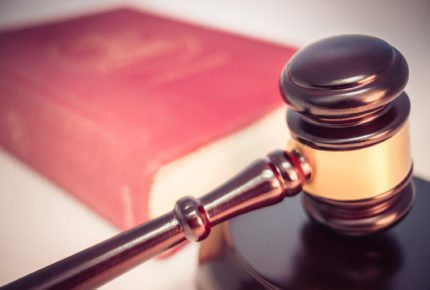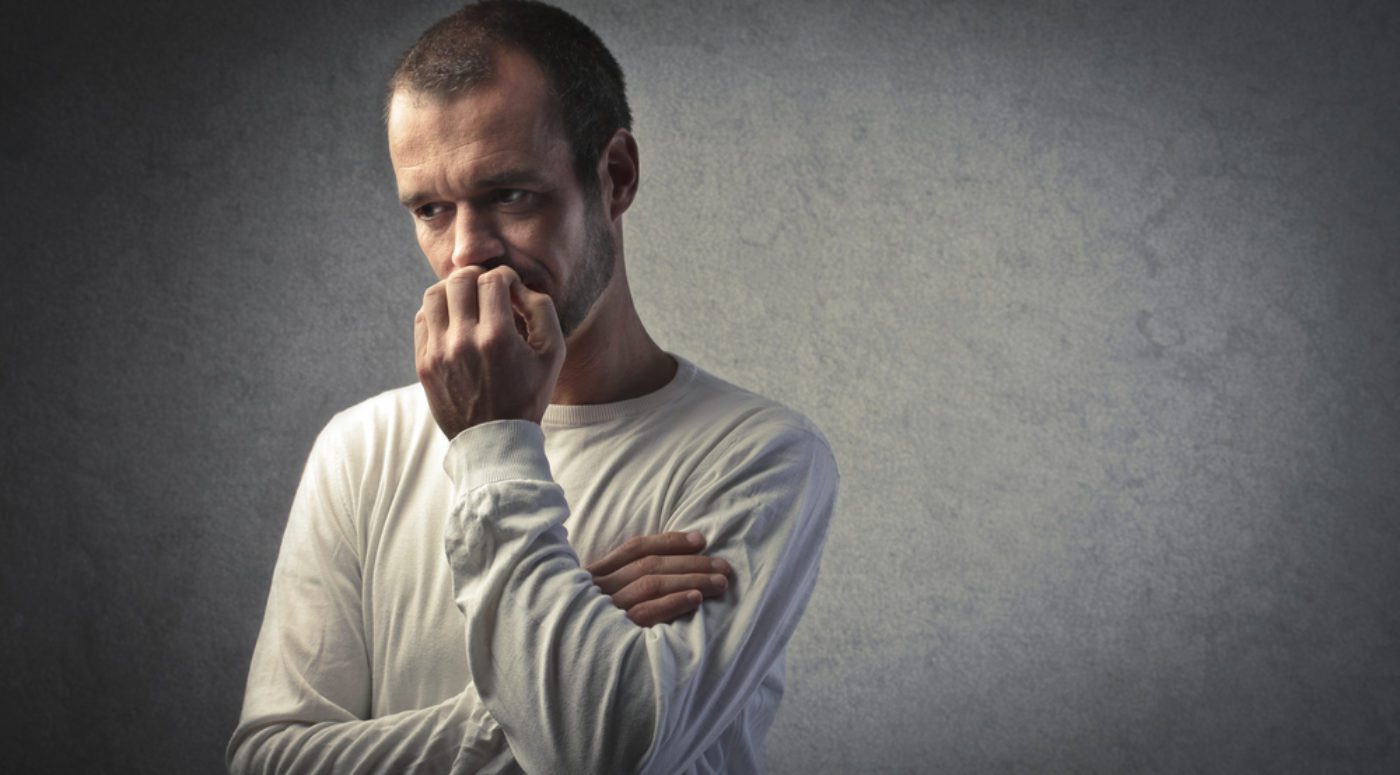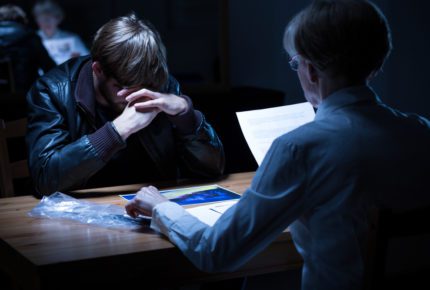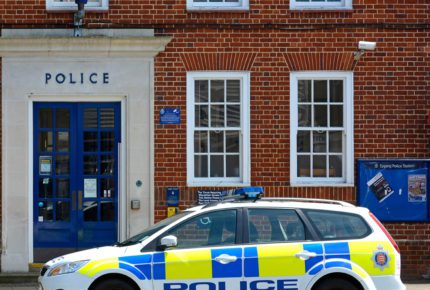

Of all the crimes that one could falsely be accused of, rape is without a doubt among the worst. People are falsely accused for a number of reasons, which include malicious accusations as well as cases of misidentification, misrecollection, and misleading forensic evidence. Knowing what to do if you are falsely accused of rape can go a long way to mitigating the damage that could be done to your reputation, as well as setting your mind at ease about what might happen next. Read on to discover more about what will happen if you are accused and what you can do to prevent word spreading about the accusation as much as possible.
Will the police come to my house?
With accusations as serious as rape, the police will want to speak with you, and they are likely to try to find you as quickly as possible. This is not only because the nature of the offence itself is so serious, but also because – in their eyes – you could be a threat to other people, or to yourself. Because the police do not want to give accused individuals a chance to run, they are likely to turn up at your house or at another location where you are likely to be (your workplace or a particular place you are known to spend a lot of time, such as your favourite pub or restaurant, for example). You are not likely to get any notice of this, again, because the police do not want to give people a chance to run away or to arrange for others to lie to police on their behalf.
Will the police interview me?
The police are likely to interview you under caution. This means you will be taken to (or requested to attend) a police station where you will be questioned about your alleged criminal activity. In cases of suspected rape, this is likely to be a difficult interview where your personal life and relationships will be questioned and scrutinised. As difficult as this may be, and as upset as you are likely to be on account of the falsehood of the accusation, you must remain calm and answer the police officers’ questions as fully and as truthfully as possible.
Remember that you have rights at the police station, including to have food, water, and rest breaks, but more importantly to legal representation. Do not say anything unless you have spoken to or are in the presence of a solicitor, who will be able to protect you as far as possible from anything that may be self-incriminating or taken in evidence and used against you at trial. If you have not had time to arrange a solicitor prior to your interview, you have the right to call one at the station or to use the duty solicitor.
The police are likely to take your fingerprints and a number of samples from you. Your consent is not required for fingerprints, saliva samples, oral swabs, or footprint impressions, but your consent is required for samples of urine, blood, and semen, and for dental impressions.
The police are also likely to take your mobile phone and any cameras or computer equipment they find in your possession. These devices will be sent to a forensic laboratory for testing, and it could be weeks or even months before you receive these devices back.
What happens after the police interview?
As soon as any accusation is made, the police will begin to investigate. This includes collecting any scene of the crime evidence, like footprints, abandoned clothing, CCTV images, and other contextual information, as well as interviewing key suspects, witnesses, and the accuser(s).
In this regard, you should know that the police investigation may have preceded your interview, and it may proceed it too. In other words, both before and after the interview the police will be investigating and gathering more evidence. As such, there could already be evidence against you and in combination with your answers at the interview, the police may decide to detain you in custody. Even where there are suspicions that the accusation may be false, with crimes as serious as rape, people are usually detained ‘just to be on the safe side’. If you are detained, you may remain at the same police station or you may be transferred elsewhere until you are able to be seen in court.
If you are released, it is highly likely you will be released with conditions attached to your bail, meaning not only that you are required to return to the station for further questioning at the police officers’ instruction, but also that you might be required to observe a certain curfew, to remain within a certain geographic area or avoid a certain area, or that you have your passport confiscated.
Should I contact the accuser?
Whatever you do, do not contact the person who has accused you of raping them. For one thing, you do not want to exacerbate the situation in general, but perhaps more importantly, you do not want to be accused of intimidating your accuser or trying to silence them. Contact whether direct or indirect (i.e. getting someone else to speak to the person on your behalf) counts in this sense, so try to put as much distance between you and the person accusing you as possible.
In any circumstances where someone is accusing someone else of a serious crime, emotions and tensions are likely to be sky high. For this reason alone, any attempt to speak to the person accusing you carries a significant risk of having the situation get out of hand. If the accuser keeps confronting or contacting you, do your absolute best to remove yourself from the situation and, where possible, have witnesses see that you are doing so. It is best to inform your solicitor if this happens.
What happens to the person who falsely accused me?
If it is discovered that the person falsely accused you, or if the person admits to such, there could be a number of consequences for that person. Much depends on the situation in these cases, and the police may decide to take or not take action regardless of your views on the matter.
In some cases, especially where the investigation has taken a lot of time or where multiple false accusations were made, the Crown Prosecution Service (CPS) may find it appropriate to charge the accuser with perverting the course of justice (a very serious offence that carries a maximum sentence of life imprisonment, although it is highly unlikely such a punishment would be issued in a case of false accusation) or – more commonly – the offence of wasting police time (which carries a maximum sentence of six months’ imprisonment and/or a fine).
In practice, however, such prosecutions are extremely rare. Rape accusations are, of course, highly sensitive issues and the criminal justice system has to be very careful not to deter people from making complaints where warranted.
In some cases, a civil claim against the person for defamation of your character may be more appropriate, especially if you have lost your job or suffered other harm as a result of the false accusations.
Where can I get help if I have been falsely accused?
On account of the serious nature of accusations and the fact that so often accusations can be false, a number of helplines have been established to assist people finding themselves in this position. It is important that you get the necessary support if you have been falsely accused, not least because you will need to be in a strong mental state to face any charges that are made against you, and the legal proceedings that will follow.
Certain websites offer general assistance and emotional support whether you have been falsely accused or have falsely accused someone else, and others offer advice solely to those on the receiving end of a false allegation. Some of the most popular and well-respected services include:
- FASO (False Allegation Support Organisation)
Helpline: 0844 335 1992
www.false-allegations.org.uk - Falsely Accused of Rape Forum
www.daftmoo.org.uk - Accused Me
www.accused.me.uk
While these services are undoubtedly useful in terms of emotional and community support, the best option for figuring out what to do if you have been falsely accused of rape is to contact an expert criminal defence solicitor.
At Stuart Miller Solicitors, we have been helping people with false rape accusations for a number of years, and our experts are placed to help you in a confidential, non-judgemental, and friendly manner. Contact us today for a no-obligation consultation about your case and more information on what to do next.
OUR COMMITMENTS TO YOU:
-
Responsive
A legal expert will consult you within 24 hours of making an enquiry.
-
Empathetic
We will always treat you with trust, understanding and respect.
-
Specialised
Your case will be handled by an expert who specialises in your type of offence.
-
Proactive
We will take early action to end proceedings as soon as it is practically and legally possible to do so.
-
Engaged
You will be kept updated on your case at all times. We will provide a named contact available to answer your questions.
-
Caring
We understand this is a difficult and stressful time for you and your family. Our team will support you every step of the way.
-
Tenacious
We will never give up on your case. We fight tirelessly to get you the best possible outcome.

